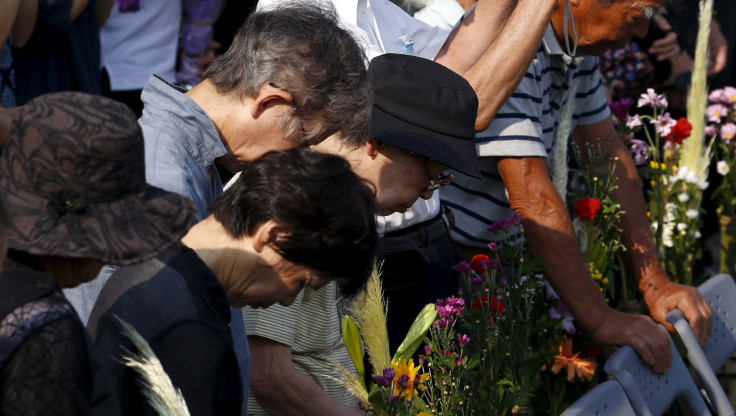Hiroshima blast still killing survivors from deadly diseases

It has been 70 years since the first atomic bomb was dropped at Hiroshima, taking lives of scores of people and went on to become one of the deadliest incidents in history. Research show that the remaining survivors of the massacre are suffering from cancer and other life threatening illnesses on being exposed to harmful radiation for years.
Aug. 6, 1945 is a dark patch that continues to haunt those who have stood witness to the horror. Koko Tanimoto Kondo was only 8 months old when the bomb was dropped. She now tours her hometown with students to tell them how the incident have haunted her for years. She also shared with the students the humiliation she had to face as a teenager when she was asked to stand naked on a stage in front of scientists and doctors for them to scrutinise her for signs of long term effects of radiation on her body. “Because of our experience in Hiroshima and Nagasaki, Japan, more than any other country, must say loudly that war is evil,” Kondo told WSJ.
The memorial day of the incident came when Japan’s Prime Minister Shinzo Abe is about to take forward a new legislation to expand the role of country’s military overseas. Survivors of the blast and aid organisations have called for a ban on nuclear weapons as the day marked the 70 th anniversary of the Hiroshima-Nagasaki blast.
The Japanese Red Cross has run hospitals for the survivors of the nuclear bomb blast since 1956 in Hiroshima and 1969 in Nagasaki. According to the reports of the Skynews figures released by the organisation shows that the effects of the bomb blast still lingers. It has treated 10,687 survivors of the 1945 blast, in 2014 alone. And according to the reports, two thirds of these survivors are dying of cancer. The most common types of cancer that have been killing people include, lung cancer, stomach cancer, liver cancer, leukaemia, intestinal and malignant lymphoma. The atom bomb blast on Aug. 6, 1945 in Hiroshima resulted in the death of at least 140,000 people. While tens of thousands more had lost their lives when a second bomb was dropped three days later in Nagasaki.
Contact the writer at feedback@ibtimes.com.au, or let us know what you think below.





















